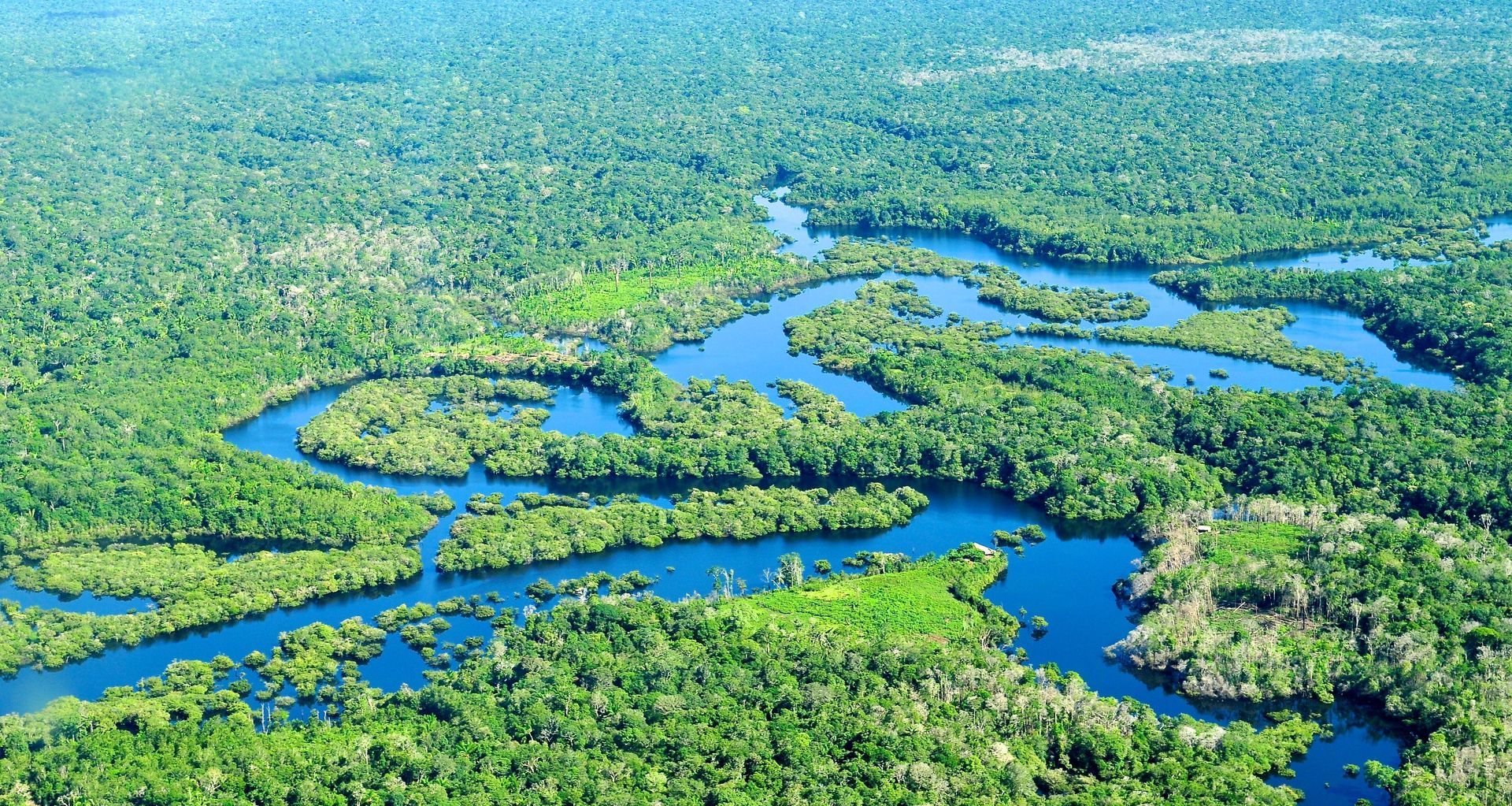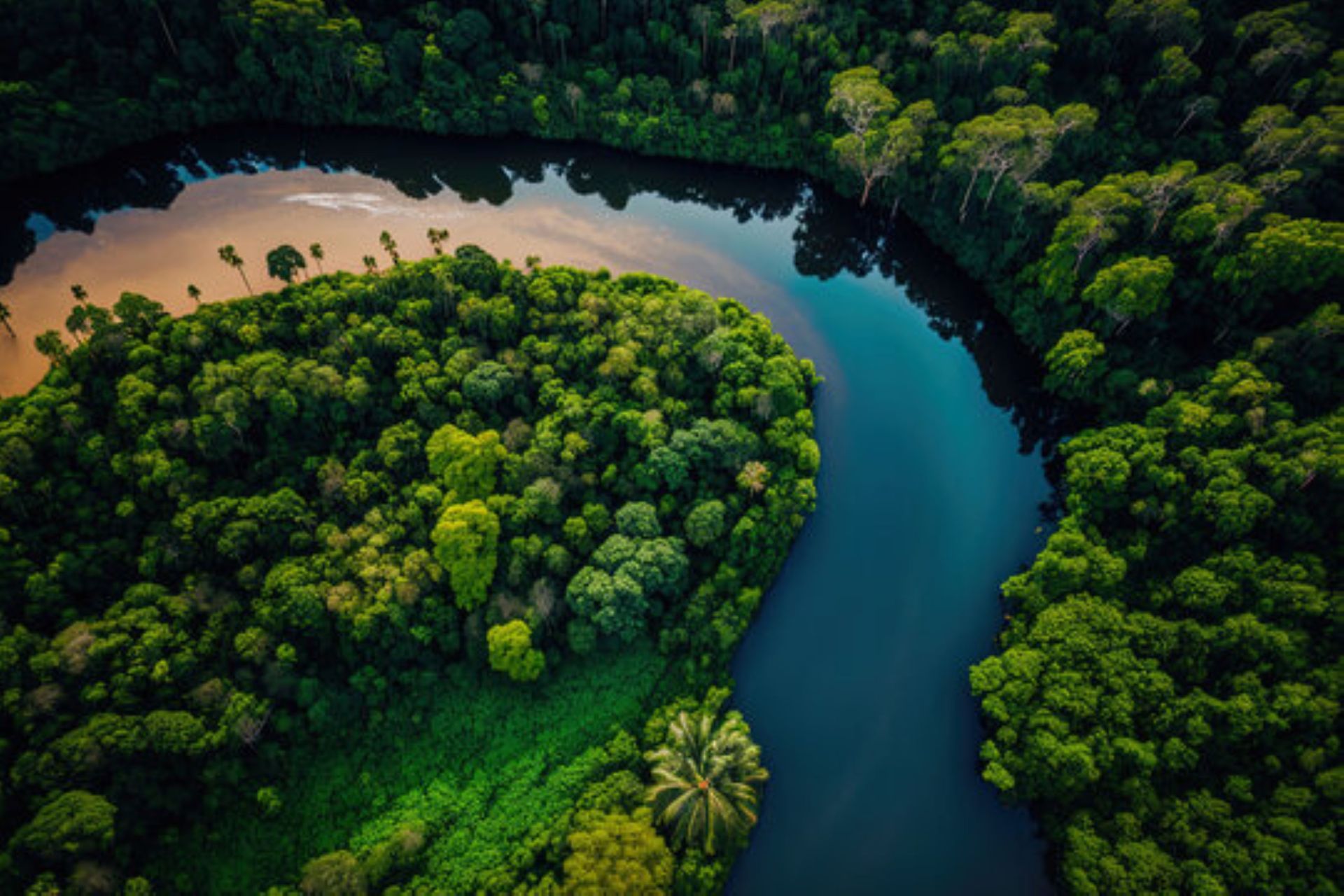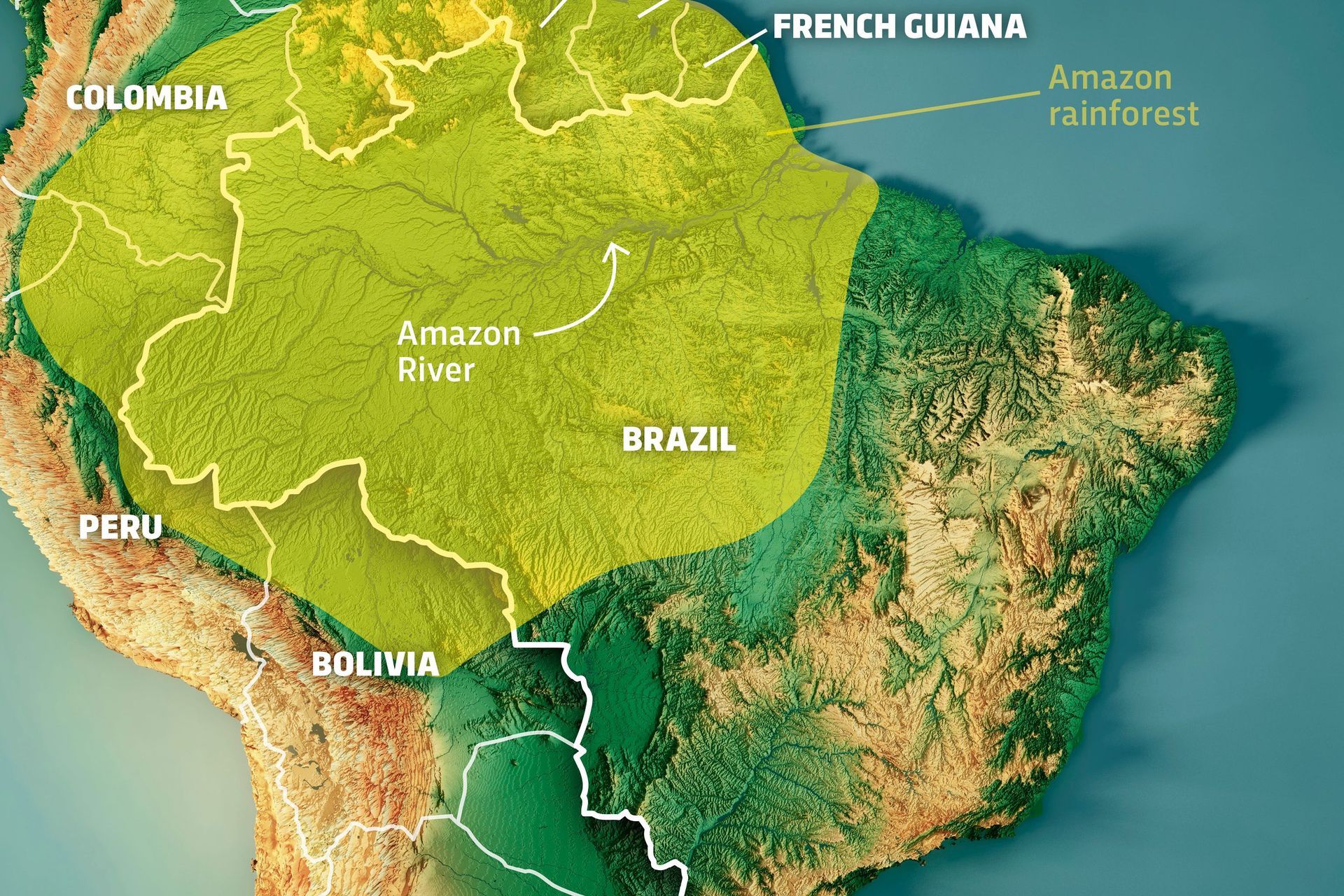Opinion: why harvesting tropical rainforest hardwood from the Amazon is unsustainable


The Amazon Rainforest, often referred to as the “lungs of the Earth”, is an irreplaceable global treasure. It harbours around 10% of the world's known biodiversity, regulates the global climate, and supports the livelihoods of millions of people. Among its many resources, tropical hardwoods are particularly valuable for their durability, strength, and aesthetic qualities. The Forest Stewardship Council (FSC) certification aims to ensure that timber is harvested sustainably, balancing environmental, social, and economic needs.
“However, even with FSC certification, the harvesting of tropical rainforest hardwood from the Amazon remains unsustainable for a variety of reasons, encompassing ecological, social, economic, and enforcement challenges,” shares Hardwood by LMA director Martin Thompson. The size of Wales (over 20,000km2) is harvested from the Amazon every year and continues to increase year on year.
Below Thompson shares eight reasons why he thinks we should move away from harvesting rainforest timber and towards more sustainable practices.
1. Ecological sensitivity & biodiversity loss
The Amazon is a highly complex and sensitive ecosystem. Tropical hardwoods such as mahogany and green/purpleheart are integral to the rainforest's structure and function.
These and many other hardwood species are keystone species, meaning their presence is crucial for the ecosystem's stability. Their removal can lead to cascading effects on biodiversity. For instance, the green heart tree provides a habitat for a variety of species, from epiphytic plants (plants that grow and climb on other plants like an orchid on a tree trunk) to birds and insects.
Biodiversity hotspot: The Amazon is home to approximately 390 billion individual trees belonging to 16,000 different species with around 1.4 billion trees each year being harvested. Logging, even if selective and certified, disrupts habitats, leading to a decline in species populations and loss of biodiversity. A study published in Nature estimates that nearly 17% of the Amazon has been deforested, primarily due to logging and agriculture, which directly threatens countless species.

2. Carbon sequestration & climate change
The Amazon Rainforest plays a critical role in regulating the Earth's climate by acting as a significant carbon sink.
Trees in the Amazon store large amounts of carbon in their biomass. In properly managed forests, trees are replaced from those taken and sequester carbon quicker than an older tree. The issue is that the trees being harvested are not being replaced and thus, less carbon is being sequestered from our atmosphere which plays a huge part when it comes to global warming.
3. Inadequate regeneration & forest recovery
The slow growth rate of many tropical hardwood species can make sustainable logging challenging.
Tropical hardwoods often take decades, if not centuries, to mature. Greenheart, for example, can take over 60 years to reach harvestable size. Logging practices outpace the natural regeneration and replanting rate leading to long-term depletion of these valuable species. The problem is, what is being harvested is not being put back, making way for livestock and crops such as soybean, one of Brazil's major exports, generating US$47.2 billion annually. As the globe continues its trend over the last three decades to a more meat rich diet (moving away from traditional plant-based diets) the need for land to raise animals is more than quadruple the land required to produce plant based food.
The intricate structure of the Amazon's ecosystems means that the removal of hardwoods to make way for livestock can alter the forest dynamics, making it difficult for the forest to recover fully. Secondary forests that grow back are often less diverse and less capable of providing the same ecological functions as primary forests.
4. Social & cultural impacts
Indigenous and local communities rely heavily on the Amazon for their cultural, social, and economic well-being.
It is no secret that logging operations, even those certified by FSC can and have led to the displacement of indigenous communities. The construction of roads and other infrastructure often leads to land conflicts and loss of access to traditional territories. This is just not a problem in the likes of Brazil and Indonesia but all over the world as these indigenous communities are forced from their land due the greed of some big corporates
The intrusion of logging companies disrupts the traditional lifestyles and cultural practices of indigenous peoples. A report by Survival International highlights how logging has led to the erosion of cultural heritage and traditional knowledge systems which is being lost at an alarming rate, particularly in the Amazon when many indigenous people live.
5. Illegal logging & corruption
Despite FSC certification, illegal logging remains a pervasive issue in the Amazon. Only 2% of all hardwood coming out of the Amazon has FSC certification so what about the other 98%? This is where time and time again cases have been published where illegal logs have been combined with legal logs.
The Environmental Investigation Agency (EIA) estimates that up to 80% of logging in the Amazon is illegal. This includes logging in protected areas, over-harvesting, and the use of fraudulent documentation to launder illegally harvested timber as certified.
Corruption and weak enforcement of forestry laws exacerbate the problem. Local and national authorities often lack the resources or political will to enforce regulations effectively. Given the Amazon Rainforest covers over six million square kilometers (25 times the size of New Zealand!) it is almost impossible to govern/monitor thus seriously undermining the credibility of FSC certification.

6. Economic pressures & unsustainable practices
“Market demand for tropical hardwoods exerts significant pressure on logging companies to maximise profits, sometimes at the expense of sustainability.
The global demand for tropical hardwoods remains high, driven by the desirability for their use in furniture, flooring and construction. This demand incentivises logging companies to harvest at unsustainable rates, even if they are certified to do so taking more than what is put back.
The economic incentives for logging are often at odds with sustainable practices. Companies may engage in selective logging of the most valuable trees, which disrupts the forest ecosystem and does not allow for adequate recovery in a sustainable ecological manner.
7. Certification & compliance issues
FSC certification, while well-intentioned, has several inherent flaws that limit its effectiveness in ensuring truly sustainable logging practices.
The costs associated with obtaining and maintaining FSC certification can be prohibitive for smaller, potentially more sustainable operations. This often leaves certification in the hands of larger companies that potentially prioritise profit over sustainability.
The FSC relies on periodic audits and self-reporting by companies, which can lead to lapses in compliance. There have been numerous reports of certified operations failing to meet FSC standards, leading to environmental degradation.
The FSC certification process often lacks transparency and accountability, making it difficult for consumers and stakeholders to assess its effectiveness. The criteria for certification and the results of audits are not always publicly available, leading to questions about the rigour and consistency of the certification process.
Local communities and environmental groups often have limited input in the certification process, which can lead to decisions that do not adequately address local ecological and social concerns.
8. Long-term sustainability concerns
The cumulative impact of logging, even when certified, raises significant concerns about the long-term sustainability of the Amazon Rainforest.
Areas that have been logged, even selectively, often become degraded landscapes that struggle to regenerate. This leads to a loss of biodiversity and ecological functions over time.
The degradation of the Amazon reduces its resilience to climate change. Healthy forests are better able to withstand and adapt to changing climate conditions, but logging weakens this capacity.”
Conclusion
The harvesting of tropical rain-forest hardwood from the Amazon, even with FSC certification, remains unsustainable due to a combination of ecological, social, economic, and enforcement challenges. The rainforest is a unique and irreplaceable ecosystem that requires a holistic and stringent approach to conservation. FSC certification, while a step in the right direction, falls short of addressing the complexities and sensitivities of logging in this critical region.
To truly protect the Amazon, we need to shift our focus from logging this hardwood to more sustainable alternatives and preserving protected areas by supporting community-based forest management. Educating those involved in importing, designing, and constructing with tropical rainforest hardwoods about their sources is an excellent first step. To ensure the long-term health and resilience of rainforests like the Amazon, we need international cooperation, stronger governance, and increased transparency. Whilst FSC certification has good intentions, people need to look beyond this and truly understand how the extent of unsustainable logging is helping in the deforestation and therefore destruction of our fragile planet. Certification standards such as PEFC in Australia, which are transparent, accountable, and rigorously monitored, provide an excellent basis for sourcing sustainable hardwood.
By recognising the limitations of current certification systems and committing to more robust conservation strategies and sources of hardwood, we can work towards a future where the likes of the Amazon rainforest continues to thrive, providing invaluable ecological, climatic, and social benefits for generations to come.
Explore sustainable hardwood solutions with Hardwood by LMA Timber
CONTACT
Please use contact details here to reach Hardwood by LMA Timber for further information.
Or fill in the form below.
Or visit their website here or further information.
